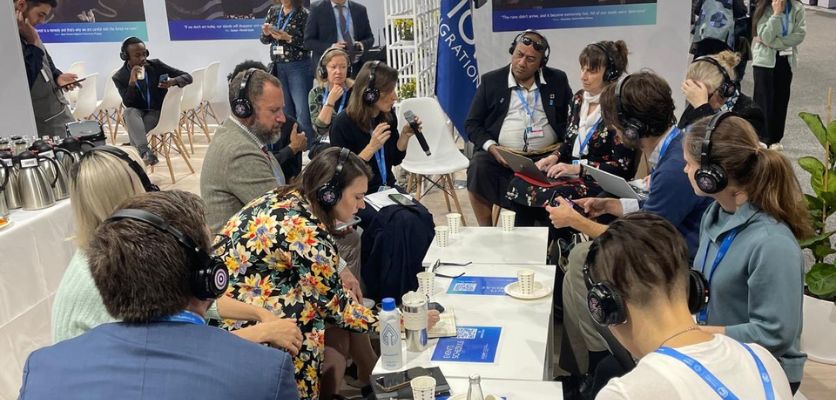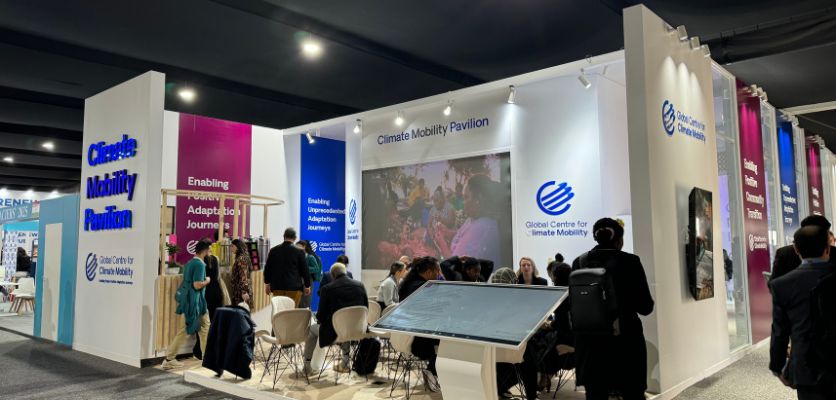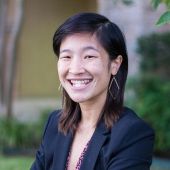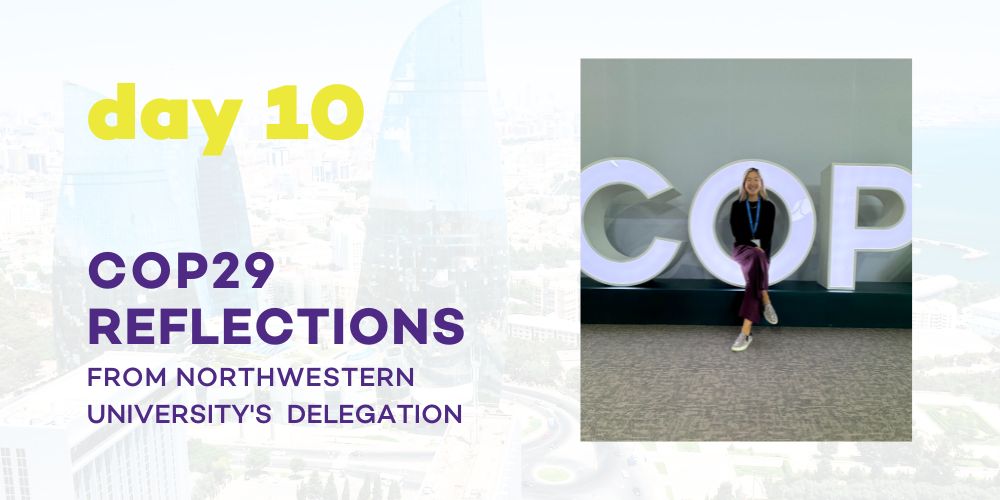Reflections from Northwestern University's COP29 Delegation: Day 10
For a fourth year, a delegation of Northwestern University students and faculty supported by the Buffett Institute is among more than 30,000 researchers, policymakers, industry leaders and activists at the world’s largest annual international treaty negotiations and climate summit, the 29th Conference of Parties (COP29) to the United Nations Framework Convention on Climate Change (UNFCCC), this year hosted in Baku, Azerbaijan. Each day, a different Northwestern delegate is blogging about their experiences and reflections. Day 10 features Michelle Lee, a PhD candidate in the Department of Sociology.
As a sociologist of migration, I am interested in how climate displacement is discussed at COP29—the global stage where climate change governance is negotiated and set each year. Climate change is one of the largest drivers of displacement. There are 123 million forcibly displaced people worldwide, and with climate change on the rise, that number is predicted to reach as high as 1.2 billion by 2050 (Institute for Economics & Peace 2020).
I begin the day by attending the Human Mobility and Climate Change Advisory Group daily coordination meeting. This meeting is the main touch point for civil society members, UN members, researchers and other interested parties to keep up to date with the latest COP29 updates on climate mobility. Climate mobility refers to climate change-induced migration, displacement and planned relocation. Today, we discuss the changes made overnight to the Global Goal on Adaptation, Just Transition Work Programme, New Collective Quantified Goal and other COP29 texts—which have important ramifications for the protection of human rights of all vulnerable groups, including migrants, women, youth and Indigenous peoples.

After the meeting, I bounce between three interviews with individuals I met at COP29. First, I interview a Sudanese refugee representing the delegate for a Global North country. He is here to learn about climate mobility since it is a situation near to his heart. He notes that while climate mobility is being discussed in the pavilions (an informal space not part of the formal intergovernmental process), he has not heard it discussed at any of the high-level COP29 discussions. Next, I interview a human rights practitioner from the EU who is concerned about the potential removal of key language in the COP29 documents that would put migrants and displaced people at risk. She notes that climate mobility is ultimately an intersectional issue intertwined with the human rights of vulnerable groups broadly. Last, I interview the leader of a climate mobility research center who is interested in promoting greater conversation and stakeholder engagement in climate mobility. His focus is less on the COP29 negotiations and more on public education and awareness.
I wrap up the day with two events at the Climate Mobility Pavilion. First up is the “Fostering Global South and North Partnerships in Addressing Climate-Induced Migration and Food System Challenges” panel, where African leaders discuss the need for biotechnology to mitigate food insecurity and thus migration in the region. Last is the “Feminist Leadership for Climate Action in the Context of Conflict and Displacement” panel, where panelists dig into how intersectionality amplifies vulnerability in migration contexts. A young woman from Costa Rica shares how her research revealed that while male migrants are predominately worried about having enough resources by the end of their journey, female migrants are concerned about finding contraceptives to prepare for expected sexual assault on their journey: a sobering reminder that the risks of migration are not shared by all.


Michelle Lee is a PhD candidate in the Department of Sociology at Northwestern University. Her research examines the digital labor supply chain and how marginalized communities such as refugees access digital work. At COP29, she will study how actors conceptualize, negotiate and politicize the issue of climate displacement, which is one of the biggest drivers of displacement. She is also an affiliate with the Science in Human Culture Program at Northwestern, Research Fellow with the Institute for Cooperative Digital Economy at the New School, and founder of the educational initiative Scientists for Migrant Learning & Education (SMiLE!).

